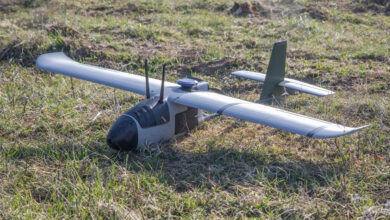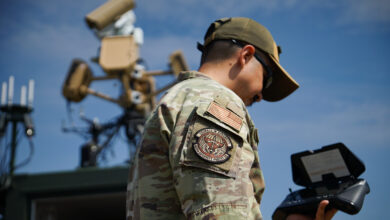In a first, Boeing and the US Navy conducted a test flight of an MQ-25 aerial refueling drone prototype with an aerial refueling store at their Illinois MidAmerica Airport test site last week.
The test asset flew for 2.5 hours with the Cobham refueling pod system, which the Navy’s F/A-18 Super Hornets carry when acting as carrier-based tankers.
The Boeing prototype, known as T1, was built for the Unmanned Carrier Launched Airborne Surveillance and Strike (UCLASS) program and flew for the first time last year. The current T1 test asset is a modified version of the design that Boeing built for the UCLASS competition.
Development and Purpose
In 2018, Boeing was awarded a US Navy contract to design and build the MQ-25 tanker drone, beating out competitors such as General Atomics and Lockheed Martin. A year later, the drone received its experimental airworthiness certificate.
The MQ-25 aims to provide relief to the F/A-18s that currently serve as tankers for the Navy’s embarked carrier air wings. The carrier-based tanker drone will ultimately replace human pilots for air refueling of military aircraft.
“To see T1 fly with the hardware and software that makes MQ-25 an aerial refueler this early in the program is a visible reminder of the capability we’re bringing to the carrier deck,” said Dave Bujold, Boeing’s MQ-25 program director, in a statement.
The development of MQ-25 may prove crucial for the unmanned aircraft system in future operations.
The Navy hopes to order more than 70 MQ-25 drones that will not only perform the fuel tanker role taken on by F/A-18 fighters but eventually perform additional missions including intelligence, surveillance, and reconnaissance.












